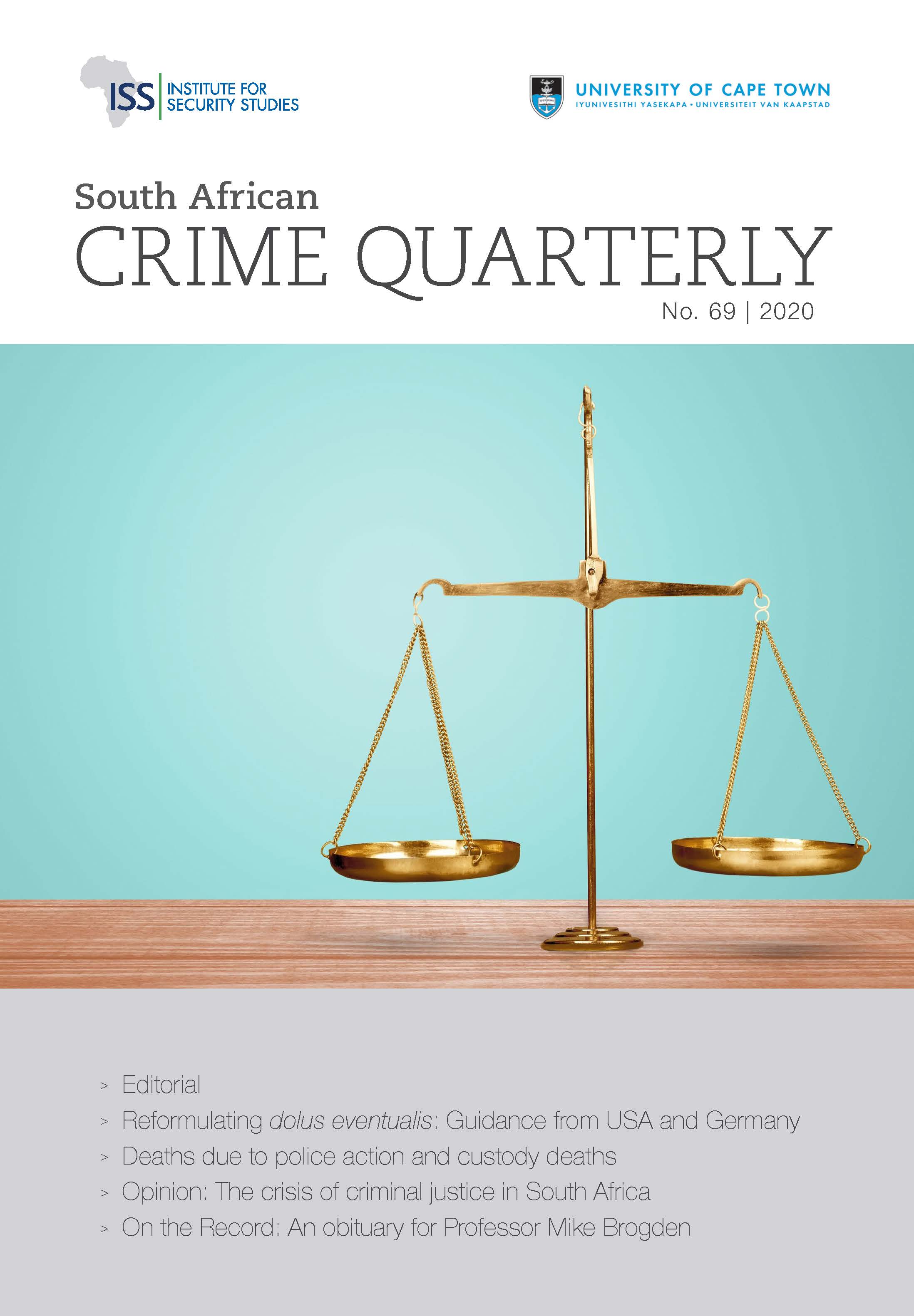The criminalisation of gang activity in South Africa: reassessing the rationale
DOI:
https://doi.org/10.17159/2413-3108/2020/i69a6464Abstract
Criminal gang activity presents a substantial threat to the safety and security of, in particular, the inhabitants of the Cape Flats in Cape Town. The State has intervened legislatively through the form of the Prevention of Organised Crime Act 121 of 1998. This is somewhat of a ‘super-criminalisation’ given that similar common law and statutory measures already existed prior to the promulgation of the Act. What is the rationale for the criminalisation of gang activity in South Africa? Furthermore, if there is sufficient rationale for this super-criminalisation, is there sufficient basis to argue for the additional responsibility of gang leaders, which is currently left uncovered by the Act?
Downloads
Downloads
Published
Issue
Section
License
Copyright (c) 2020 Author and Institute for Security Studies/UCT

This work is licensed under a Creative Commons Attribution 4.0 International License.
SACQ is licenced under a creative commons licence (CC BY) that allows others to distribute, remix, tweak, and build upon your work, even commercially, as long a they give appropriate credit, provide a link to the license, and indicate if changes were made. They may do so in any reasonable manner, but not in any way that suggests the licensor endorses you or your use.
Copyright for articles published is vested equally between the author/s, the Institute for Security Studies and the Centre of Criminology (UCT).




.png)